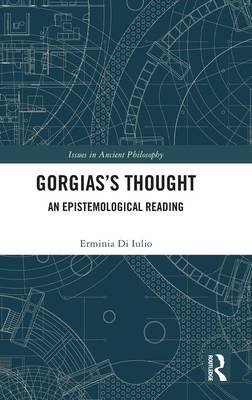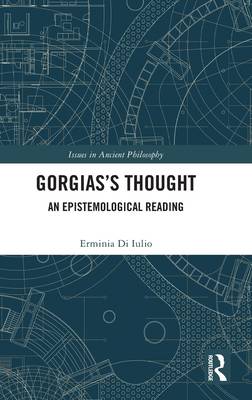
- Afhalen na 1 uur in een winkel met voorraad
- Gratis thuislevering in België vanaf € 30
- Ruim aanbod met 7 miljoen producten
- Afhalen na 1 uur in een winkel met voorraad
- Gratis thuislevering in België vanaf € 30
- Ruim aanbod met 7 miljoen producten
Omschrijving
Gorgias's Thought: An Epistemological Reading is the first monograph published in English entirely devoted to Gorgias's epistemological thought and provides a new perspective on Gorgias's thought more broadly.
The book aims to undermine the common idea that Gorgias is either an orator uncommitted to any conception of truth, or a thinker whose interest is confined to the philosophy of language. It considers his major texts--On What is Not, or On Nature, The Apology of Palamedes and The Encomium of Helen--emphasising the originality and specificity of Gorgias' thought. In combining a philological analysis with substantive use of contemporary epistemological approaches, Di Iulio shows that Gorgias is to be considered first and foremost an epistemologist.
Gorgias's Thought: An Epistemological Reading is of interest to students, scholars and specialists in ancient thought, epistemology, history of philosophy and rhetoric.
Specificaties
Betrokkenen
- Auteur(s):
- Uitgeverij:
Inhoud
- Aantal bladzijden:
- 162
- Taal:
- Engels
- Reeks:
Eigenschappen
- Productcode (EAN):
- 9781032234427
- Verschijningsdatum:
- 3/08/2022
- Uitvoering:
- Hardcover
- Formaat:
- Genaaid
- Afmetingen:
- 156 mm x 234 mm
- Gewicht:
- 417 g

Alleen bij Standaard Boekhandel
Beoordelingen
We publiceren alleen reviews die voldoen aan de voorwaarden voor reviews. Bekijk onze voorwaarden voor reviews.











